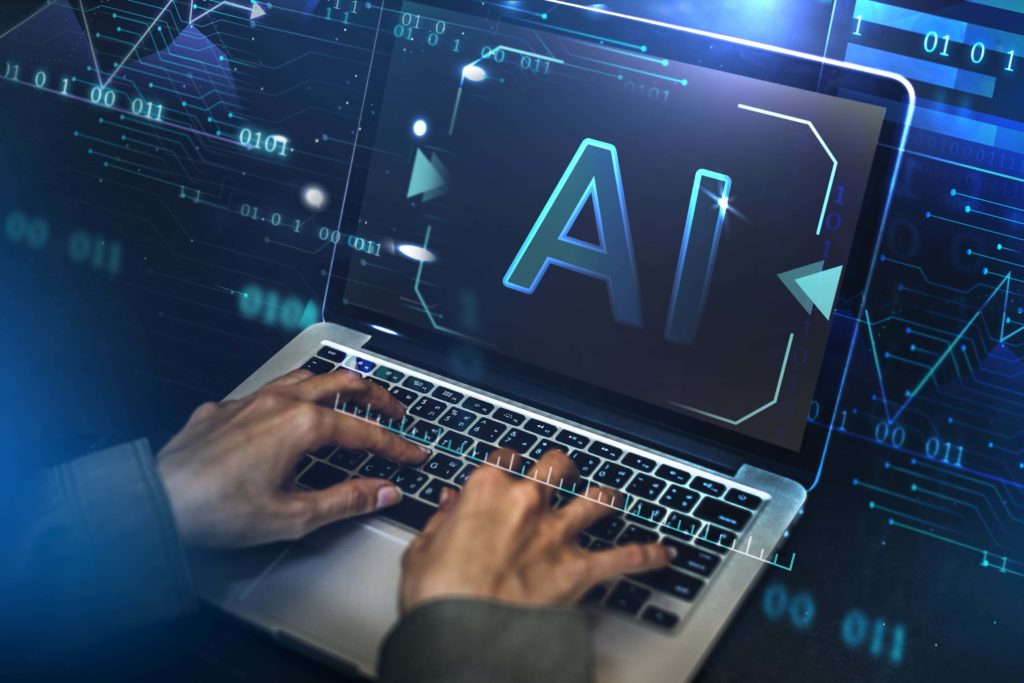Artificial Intelligence (AI) has come a long way since it was first introduced to the world. Technological developments such as machine learning, natural language processing and computer vision have extremely changed the entire business and work outlook.
Artificial Intelligence is completely increasing the rate of industries. According to research by Accenture, AI will add around $1 trillion in value to the banking industry by 2035. All studies indicate that AI in the banking and financing industry is going to be more relevant in the upcoming years.
In this article, we will talk about the advantages of using AI in banking and finance industries and their applications but first, let’s take a look at the current situation in the industry.
The Current Situation in the Banking and Financing Industry
To be clear, AI in financial services isn’t something new. The industry already uses a wide range of technologies to detect suspicious transactions. However, the end result is not as satisfying as it should be.
Most banks and financial institutions are still entering their data by hand, filling out forms, accommodating transactions, etc. It’s very clear that the entire banking and finance sector is going to have to adopt AI technology to remain relevant against tech-savvy customers and stand up to the fierce competition posed by the means of FinTech companies.

What are the Top Benefits of AI in Finance and Banking?
AI provides many important benefits that enhance customer and employee experience in the front-office, prevent frauds and risks, avoid possible human errors and improve workflow by automation. Below is a list of some of the top benefits of AI in finance and banking.
Improved Customer Service
Banks as a whole never seemed to be open when you needed them the most, such as late in the night, on holidays and even on weekends.
Long wait times have been common in all call centers, and even when the employees at the call center engaged with the customer, they often couldn’t manage the customer’s issue so the problem was less likely to get solved. Even in the digital banking era, online banking platforms and mobile applications, which should be problem solvinginstruments, are not fulfilling the customers’ needs completely.
AI is changing the game.
Chatbots, which are conversational assistants to help a customer that needs assistance with a transaction, could be one of the biggest benefits of AI in the banking industry.
Instead of an employee, a chatbot can be available 24/7, and customers may be more comfortable using this program to get answers to their questions and complete regular procedures that require traditional face-to-face communication.
Fraud Detection and Regulatory Compliance
When it comes to fraud detection, machines are superior compared to humans. Without proper analysis, criminal exercise can fly under the radar despite meeting the fulfilled requirements. Specifically in this area, AI is superior to humans. AI can analyze gigantic amounts of financial data and pick out suspicious activities.
Manually analyzing these transactions might lead to big mistakes. Without an AI fraud detection system that’s active in the banking system, it’s nothing but heaven for criminals to launder money or finance illegal activities.
Regulatory compliances are mostly applied by third-party audit organizations. Banking regulatory compliance has notable costs and even a higher liability if not followed.
Considering a human is doing all the work, some important details could be missed and they would have to do the report all over again due to a small detail, which matters a lot. With the right software and machine learning, the entire bulk of information would be accurate, and potential errors could be marked or even disallowed.

Loan and Credit Decisioning
Banks use AI systems to evaluate whether a customer is eligible for a loan or a credit request. Currently, most banks are using limited methods, like credit scores, credit history, references and transaction history to determine if an individual is qualified to get a loan.
In the future of banking and finances, this method is less likely to be applied. This is because these credit reporting systems are nowhere near perfect and often full of errors. AI-based credit decision systems and machine learning algorithms can look at individuals’ patterns and consuming habits to determine whether a customer with limited credit history might be a good customer or vice-versa.
Automated Investment Process
Banks are always looking for financial solutions for their customers to make a proper investment with their assets.
What distinguishes AI from humans is the simple fact that while humans are mostly stuck in a loophole to find financial solutions to share with their customers, AI systems, however, are creating opportunities through better modelling and discovery.
Companies like Switzerland-based UBS and Netherlands-based ING are using AI systems to scour the markets for fresh investment opportunities and inform their algorithmic trade systems.
Operational Cost and Risk Reduction
While the banking industry is mostly digital in operation, it’s still littered with human-based operations that are mostly paper-intensive. During these processes, banks are facing gigantic operational costs and risks due to the potential for human error. Considering financial data management is mostly controlled by employees who are working in the particular company, the risk of losing crucial data might cost more than we could ever imagine.
Robotic process automation (RPA) is being used to decrease plenty of the time-consuming and open-to-error labor while inputting customer data from contracts, forms and different sources. RPA is software that mimics rules-based digital processes performed by humans.
Paired with enhanced handwriting recognition, natural language processing and other AI technologies, RPA bots become advanced intelligent process automation tools that can deal with an increasingly broad range of banking activities handled with the aid of humans. The advantages of merging AI with RPA are detailed in the definition of hyper-automation.
The Future of AI in the Banking and Finance Industry
Digitalization is inevitable, and the description of digitalization in this era means adopting AI applications in any industry. AI is going to be vital to banks’ approaches and operations and is going to innovate and evolve itself in time without manual intervention. AI will not only strengthen banks with the aid of automating its data workforce, but it will additionally make the total method of automation intelligent enough to eliminate cyber risks and competition from FinTech solutions.
FinTech Could Be The Solution For Your Organization
ForInvest is here for you to create a strong digital asset to become a strong stakeholder in the future of finance.
With 30+ years of financial industry experience and our dedicated team of professionals, we help institutions to go beyond common financial solutions and deliver ultimate value for customers with revolutionary technology. Act now to join the next FinTech revolution.